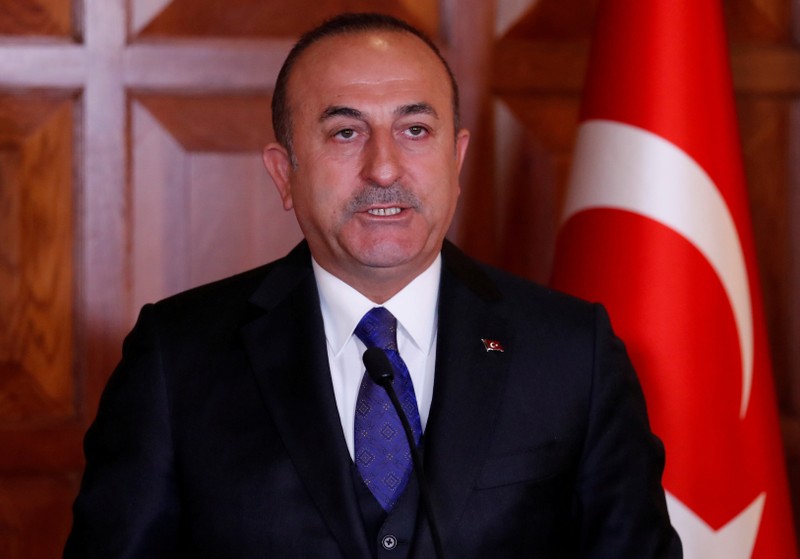
FILE PHOTO: Turkish Foreign Minister Mevlut Cavusoglu attends a news conference in Ankara, Turkey, April 1, 2019. REUTERS/Umit Bektas/File Photo
May 15, 2019
By Ece Toksabay
ANKARA (Reuters) – Turkey is discussing with the United States setting up a working group to assess the impact of its purchase of Russian missile defences systems, but will not delay their delivery, Foreign Minister Mevlut Cavusoglu said on Wednesday.
Tensions between Turkey and the United States are running high over Ankara’s decision to buy the S-400 missile defences, which are not compatible with NATO systems.
U.S. officials say Turkey’s planned purchase would jeopardise its role in building F-35 fighter jets as well as its purchase of the aircraft, which Washington says would be compromised by the presence of the S-400s.
The United States and other NATO allies that own F-35s fear the radar on the system will learn how to spot and track the jet, making it less able to evade Russian weapons.
Ankara says U.S. concerns are overstated and has been pushing Washington to establish a working group to assess the risks the system would be posing to the F-35 jet.
“We are exchanging opinions on how this could work, we will continue to share our views. Once we agree on that, we will decide if there will be a working group or not,” Cavusoglu told reporters in Ankara. “The discussions are ongoing, there is nothing certain yet,” he added.
On Monday, a source familiar with the matter said the United States had asked Turkey to delay taking delivery of the S-400 system, currently scheduled for July, in return for potentially approving the formation of the working group.
“There is no such thing as postponing or cancelling at this stage,” Cavusoglu said. “It’s not on the agenda either.”
The disagreement is the latest in a series of diplomatic disputes between the United States and Turkey. They include Turkish demands that Washington extradite cleric Fethullah Gulen, differences over Middle East policy and the war in Syria, and sanctions on Iran.
A Turkish court on Wednesday remanded in jail U.S. consulate employee Metin Topuz and set the next session of his trial on espionage charges for June 28, a lawyer for Topuz said.
(Additional reporting by Tuvan Gumrukcu; Editing by Dominic Evans and Alison Williams)

